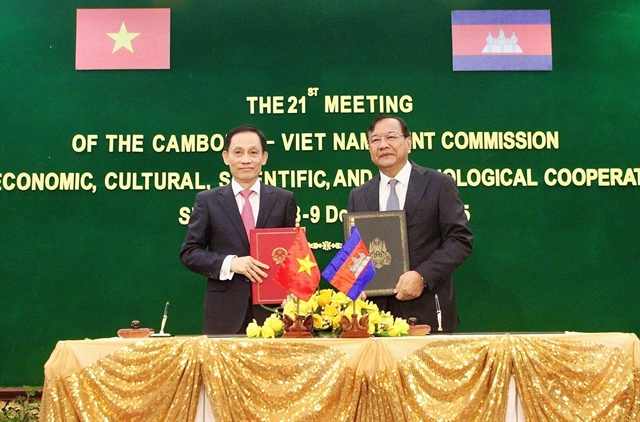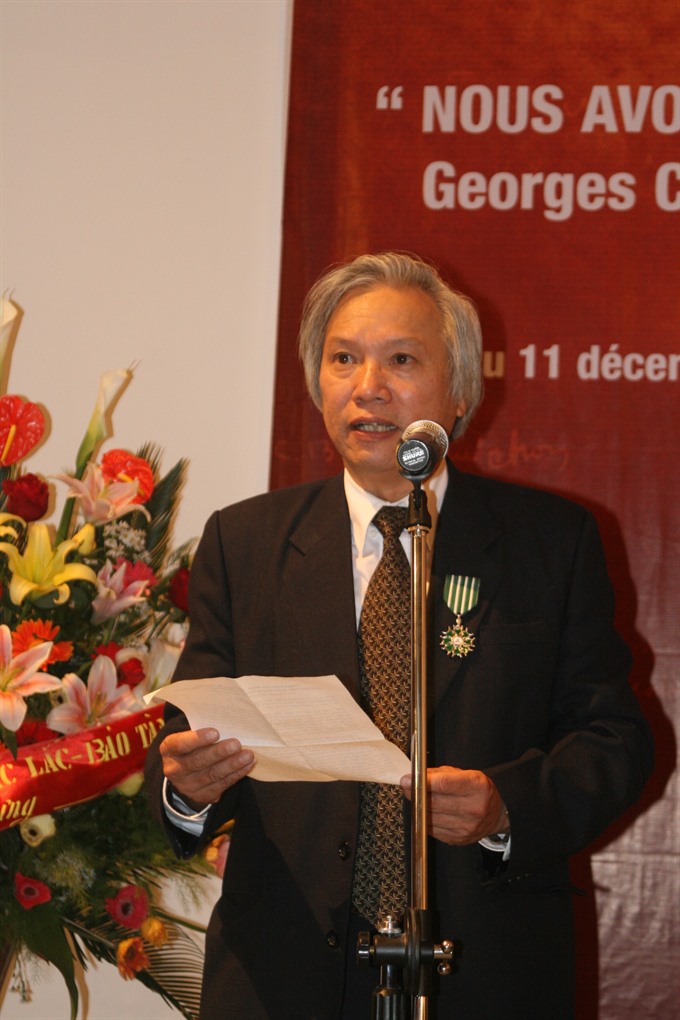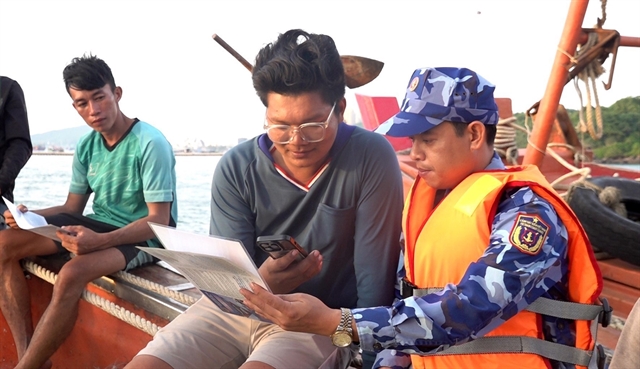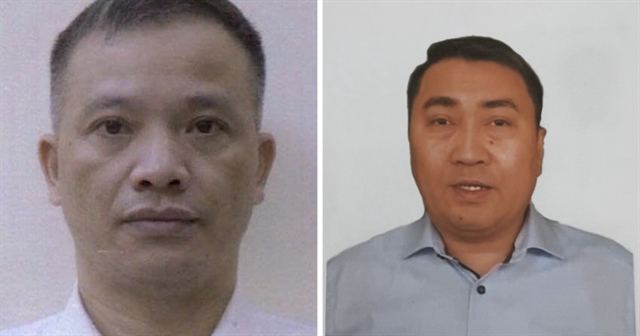

He has studied a lot about the people of Việt Nam.
" />A famous person who was born in the Year of the Rooster is Professor Nguyễn Văn Huy.
He has studied a lot about the people of Việt Nam.
 |
| Professor Nguyễn Văn Huy received France’s prestigious award Chevalier de L’Ordre des Arts et des Lettres (Knight of the Order of Arts and Letters ) in 2007. Photo thethaovanhoa.vn |
A famous person who was born in the Year of the Rooster is Professor Nguyễn Văn Huy.
He has studied a lot about the people of Việt Nam.
He also once started a museum.
The professor’s personality shows all the signs of someone born in the Year of the Rooster.
By Bạch Liên
January 27 marks the start of the Year of Rooster, the tenth ranked of the Chinese zodiac animals, another Lunar New Year.
In Chinese and Vietnamese culture, the rooster represents fidelity and punctuality, as it wakes people up.
People born in this year are believed to be kind-hearted, hard-working, courageous, independent, humorous, optimistic, honest and have pride in their inner self.
Born in August 1945 in Hà Nội, Professor Nguyễn Văn Huy, one of most famous researchers of ethnology of Việt Nam, is among a few renowned Vietnamese researchers born in the Year of the Rooster.
Those who know about his life and career can see that he has several characteristics of people born in the year of the rooster: hard-working, courageous and optimistic.
1945 is most remembered in Vietnamese history for the famine that occurred in northern Việt Nam from October 1944 to May 1945, during the Japanese occupation of French Indochina. Up to 2 million people are estimated to have died of starvation in this period.
Huy was born several months after the end of this famine but like most Vietnamese people living in the North then, he experienced a difficult childhood. Those hard years gave birth to his determination and courage.
He is best known as the founding director of Việt Nam Museum of Ethnology (1995-2006).
Huy enthusiastically took part in field trips with the Việt Nam Institute of Ethnology to remote and mountainous areas bordering China and Laos in the 1960’s, surveying then little known ethnic minority groups. Along with his colleagues, he conducted the first sociological surveys of ethnic groups across the country.
He wrote approximately 60 journal articles and more than 10 books, among which are Faces, Voices and Lives: Experience of a Director in Building a Museum for Communities (Thế Giới Publishers, Hà Nội, 2008) and Vietnam: Journeys of Body, Mind and Spirit (co-edited with Laurel Kendall, University of California Press, Berkeley, 2004).
For his contributions to preserving cultural heritage, he received France’s prestigious award Chevalier de L’Ordre des Arts et des Lettres (Knight of the Order of Arts and Letters ) (in 2007), Aid to Artisans Award (2002), and the Rockefeller 3rd Award (Asian Culture Council, 1999).
Heritage of Vietnamese scientists and scholars
After his retirement from the Việt Nam Museum of Ethnology, Huy assumed the post of director of the Heritage of Vietnamese Scientists and Scholars. Over the last seven years, he and his colleagues have worked to preserve heritage and documents about Vietnamese scientists and scholars.
His efforts have enticed many people to read the documents useful for their research.
“From the stories about the lives of scientists, we can draw a panorama of the history of the development of Việt Nam’s science history in particular and Việt Nam’s history in particular,” Huy said.
“Through the heritage and documents that the centre has collected, young people will understand better how hard professors and well known doctors in the country studied and worked to become leading professors and doctors,” he adds.
“Young people today will learn how to contribute to society. Moreover, by learning about the lives of the scientists, they will better know about the difficult years in the history of Việt Nam.”
He believes that heritage is not something to be kept solely in a museum, but should be brought to the community.
“Family is my great school”
Huy is also the founder and director of a museum dedicated to his father Nguyễn Văn Huyên, which displays nearly 400 objects and documents of the 20th century on the life and career of the late Minister of Education and cultural researcher.
Nguyễn Văn Huyên was Minister of Education for 29 years and was honoured several times for his contributions to the country’s education sector.
Huy’s mother is well-known painter Vi Kim Ngọc.
“Since I was a child, my parents encouraged me and my brothers and sisters to take part in social activities. But they also taught us about the importance of the family and how to show love to the family,” he recalls.
“Family was my great school where I learned many important things,” he said.
A road passing through the Việt Nam Museum of Ethnology was named after his father, where he devoted talent, time and passion for years to turn it into a beautiful cultural spot, where Vietnamese people and international tourists can discover the essence of Việt Nam.— VNS
GLOSSARY
In Chinese and Vietnamese culture, the rooster represents fidelity and punctuality, as it wakes people up.
Fidelity means loyalty.
Punctuality means being on time.
People born in this year are believed to be kind-hearted, hard-working, courageous, independent, humorous, optimistic, honest and have pride in their inner self.
Optimistic means always believing that good will come of anything.
Born in August 1945 in Hà Nội, Professor Nguyễn Văn Huy, one of most famous researchers of ethnology of Việt Nam, is among a few renowned Vietnamese researchers born in the Year of the Rooster.
Ethnology is the science of the races people are made up of.
Renowned means famous.
1945 is most remembered in Vietnamese history for the famine that occurred in northern Việt Nam from October 1944 to May 1945, during the Japanese occupation of French Indochina.
Famine happens when there is no food around.
Up to 2 million people are estimated to have died of starvation in this period.
Starvation happens when people suffer from not eating.
He is best known as the founding director of Việt Nam Museum of Ethnology (1995-2006).
The founding director of the museum is the director who started the museum.
Huy enthusiastically took part in field trips with the Việt Nam Institute of Ethnology to remote and mountainous areas bordering China and Laos in the 1960’s, surveying then little known ethnic minority groups.
Remote means far away.
Surveying means counting and studying.
Along with his colleagues, he conducted the first sociological surveys of ethnic groups across the country.
Sociological surveys are surveys related to sociology, which is the nature and development of human society.
For his contributions to preserving cultural heritage, he received France’s prestigious award Chevalier de L’Ordre des Arts et des Lettres (Knight of the Order of Arts and Letters ) (in 2007), Aid to Artisans Award (2002), and the Rockefeller 3rd Award (Asian Culture Council, 1999).
Prestigious means very smart.
After his retirement from the Việt Nam Museum of Ethnology, Huy assumed the post of director of the Heritage of Vietnamese Scientists and Scholars.
Your retirement is your time after leaving your job because you are too old to carry on.
To assume a post means to take up a post.
“From the stories about the lives of scientists, we can draw a panorama of the history of the development of Việt Nam’s science history in particular and Việt Nam’s history in particular,” Huy said.
A panorama is a wide view.
He believes that heritage is not something to be kept solely in a museum, but should be brought to the community.
Solely means only.
Huy is also the founder and director of a museum dedicated to his father Nguyễn Văn Huyên, which displays nearly 400 objects and documents of the 20th century on the life and career of the late Minister of Education and cultural researcher.
If “the late” is written before someone’s name it means that person is dead.
A road passing through the Việt Nam Museum of Ethnology was named after his father, where he devoted talent, time and passion for years to turn it into a beautiful cultural spot, where Vietnamese people and international tourists can discover the essence of Việt Nam.
To devote means to give faithfully.
Talent is natural skill.
WORKSHEET
State whether the following sentences are true, or false:
© Duncan Guy/Learn the News/ Viet Nam News 2017
1. True; 2. False; 3. True; 4. True; 5. False.




